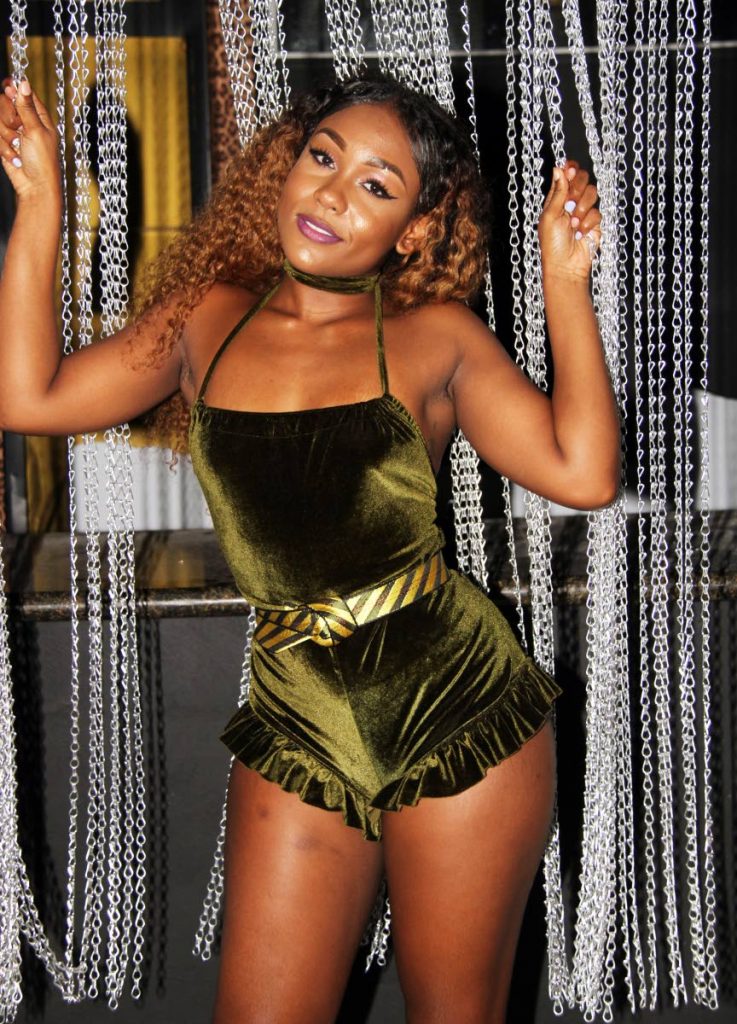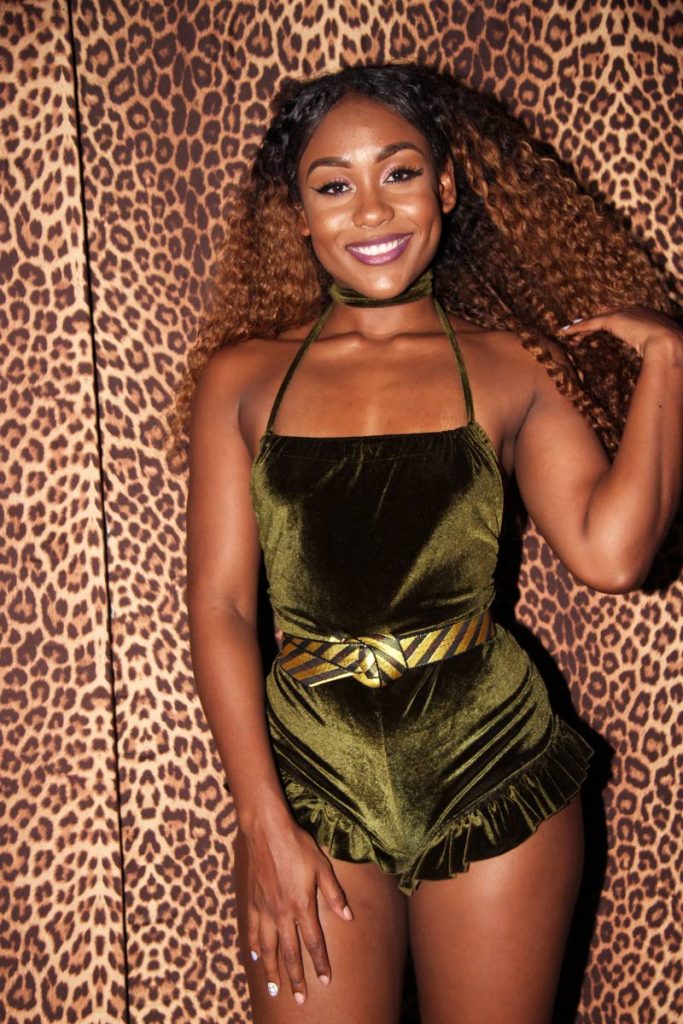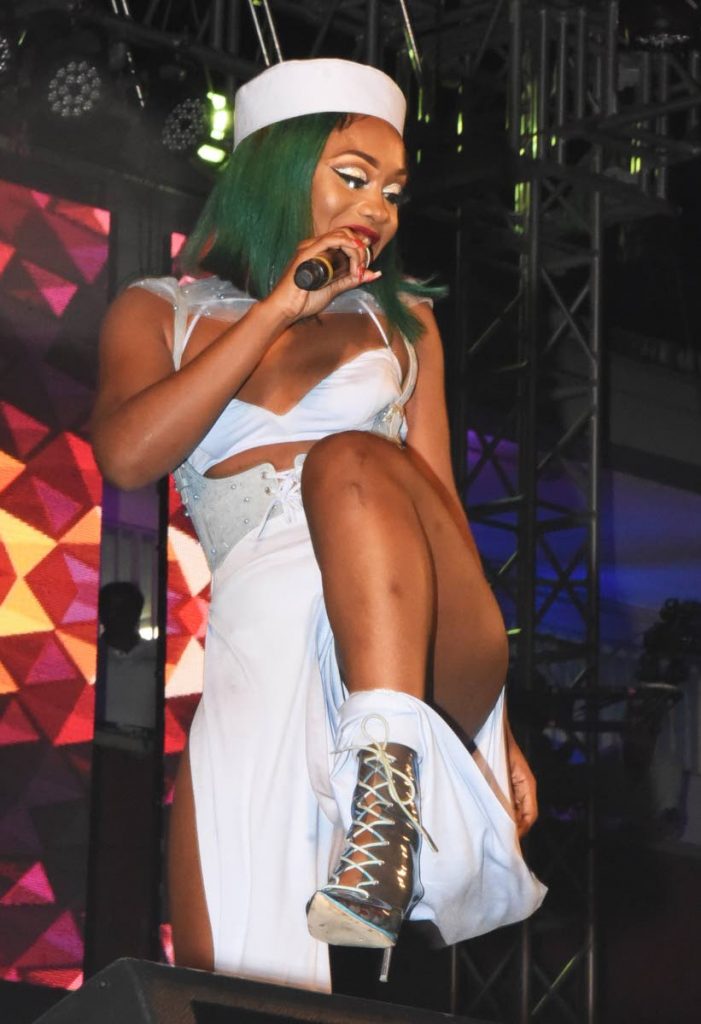‘My soca’s more than Carnival’

Nailah Blackman is hyped for 2019.
Not only because of her soca contributions to Carnival – Iron Love, Games, Bang Bang, and Brave with Sekon Sta and Erphaan Alves – but because she will be recording and releasing her first full album this year.
The 21-year-old told Sunday Newsday she and her team, including manager, producer and sometimes co-writer Anson Soverall, plan to attend a writing camp to write, produce and record an international album soon after Carnival. “That’s a project we hope to do grand things with. It’s very exciting. It’s a big undertaking but it has to come out this year... and it will have soca on it.”

She explained that, although she sang at school and other calypso and soca monarch competitions from ages three to 15, before she hit it big with Work Out – her first official soca release with Kes The Band for Carnival 2017 – for years she performed on TT’s underground circuit, everywhere she could, singing mostly pop and alternative music with her acoustic guitar.
“It was always my dream to do more alternative music but I felt I couldn’t be the granddaughter of the creator and not do soca music. Plus I was so tired of doing the same circuit, I didn’t feel like I was growing and I’m all about growth and becoming my better self.”
She said she was being pigeon-holed as “that girl with the guitar” but she wanted to sing with a band, dance, and do more and soca gave her that. “So when I went to Anson in 2016 and said I want to do soca he was like, ‘I’m so happy you said that to me.’ He had a plan. He knew exactly what to do and he said he would give me three years to achieve international success.”
Nailah is in her third year of performing soca, and while she had a small taste of success with the BET nomination for Best New International Act, in 2018, she is working very hard to go even further and achieve that goal set by Soverall.
Shorty's music lives in me
Iron Love was co-written by Blackman, Mical Teja and Soverall. She explained the chorus is a sample of her grandfather, Garfield “Lord Shorty” Blackman’s song, Cory Iron. (Lord Shorty became Ras Shorty I as a born-again Christian.)

“Just as I did Sokah, last year, as a tribute to him I wanted to keep up doing tributes to him and his music, because I really don’t feel he gets the recognition he deserves being the creator of soca music – the person who coined the name, came up with the concept, everything from beginning to end before everybody evolved it. I think people are more credited for the evolution of it rather than the creation of it and I don’t think that's fair. I just wanted his music to shine on and live on in me.”
With Games, which was co-written by Emmanuel Rudder, Dale Ryan, she said she had writer’s block. She said she was over-thinking it because she did not want to feel that she did not have depth. At that point, she said she wanted to express her feelings rather than make people dance but Rudder and Ryan eventually helped her shape the song.
“I want people to get to know who I am as an artiste and I feel like soca makes that a challenge when it comes to writing. My biggest struggle is that sometimes I would write certain things and it would connect with people but it wouldn’t necessarily connect with Carnival. Soca music has become Carnival music so I had to find a way to make my music fit in Carnival and also make me happy.”
This, she believes, is one of the reasons soca never went international – because people are doing the same thing and writing so that only Caribbean people who understand the culture, appreciate Carnival, and enjoy the party life can relate to it. Instead, she said soca can be written so that, even those who do not understand the culture or get the music, can identify with something in the lyrics.
“I think that’s the reason why soca has not made it worldwide, because a lot of people cannot identify with it because they don’t know what Carnival is. They don’t know what Carnival feels like. They just don’t understand. We have to make them understand in their way but do it our way at the exact same time.”
She stressed that even in TT there are people who did not like to party. She said they are just regular people with regular lives who enjoy music that tell stories they could relate to and feel connected. These people listen to genres of mainstream music during the year and, even if they like the beat, they will want to hear about things other than Carnival.
The youths of Generation BRAVE, she said, are not going to miss out on being played all year round. They intend to be in every part of people’s lives. “We want to fuse the two worlds saying, ‘Hey we’re regular people... Sharing who we are as a person and then saying we just want to have fun.”
One with Generation BRAVE
Blackman said it is about the younger generation of soca artistes who are proud of their culture, stamping the fact that they are the future and are here to stay, after fighting long and hard to be recognised.
“We have a weird industry where the older heads always run things, whereas in other industries the youths are given more of a platform. In this industry, it’s like you have to pay your dues and you have to be out here like ten years to make some money, or do something big. We’re not just given the respect because we’re talented.
“It is not the youth against the older heads. We all admire and respect the hard work they put in to building soca and we want to forge a way for people under us to come up so it could be easier for them, for their talent to be shown, and we have to be brave in order to do that.”
She said those of Generation BRAVE appreciate and are inspired by what the “older heads” did for the culture and, through their music, they are trying to get those older ones to trust them to continue when they can no longer go on.
* Generation BRAVE means, Bold Revolutionary Artistes of the Vibesy Era. It is the concept of music producer/manager Anson Soverall, who in a Newsday interview on January 31, said BRAVE is a movement of “this era’s soca artistes bearing the responsibility to carry the art form further to a next level.” Nailah Blackman, Nesta "Sekon Sta" Boxhill and Erphaan Alves are the stars of Generation BRAVE.


Comments
"‘My soca’s more than Carnival’"